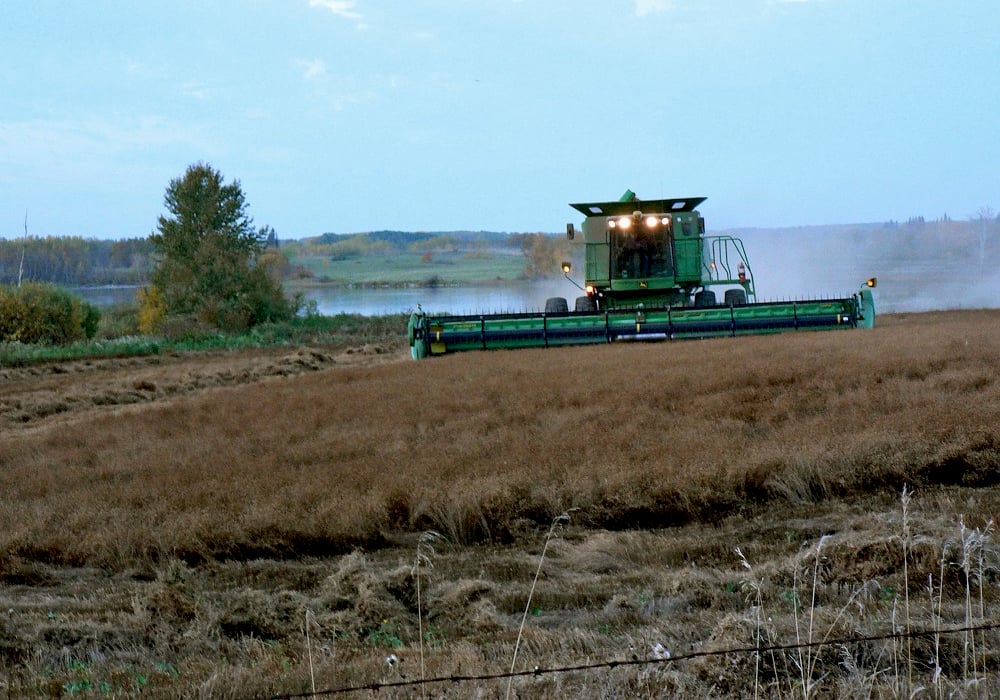The federal government is talking to the red meat industry about the labour crisis in the sector, but it hasn’t committed to speeding up the immigration process for industrial meat cutters and butchers.
In October, John Masswohl, Canadian Cattlemen’s Association director of government and international relations, said the CCA and other associations were lobbying Citizenship and Immigration Canada (CIC) to add meat cutters to a list of high demand occupations in Canada.
If CIC agrees, foreigners who want to work as meat cutters in Canada would be eligible for Express Entry, a program that expedites immigration for high skill/high demand jobs.
Read Also

Most of Manitoba harvest wraps up for 2025
Manitoba Agriculture issued its final crop report of 2025, showing the overall provincewide harvest at 97 per cent complete as of Oct. 20. Nearly all major crops have finished combining, with 37 per cent of Manitoba’s sunflowers finished, plus 71 per cent of grain corn and small amounts of soybeans and potatoes left to do.
A CIC spokesperson would not confirm the government is considering such an option. She said discussions to address “labour supply pressures” in the meat industry are ongoing.
“It is important to note that Express Entry is not a new immigration program, but rather an immigration application management system,” she said. “When launched in January 2015, we will use the Express Entry system to manage the application process of four existing programs that focus on skilled workers: Federal Skilled Worker Program, Federal Skilled Trades Program, Canadian Experience Class and a portion of the Provincial Nominee Program.”
Ron Davidson, Canadian Meat Council director of trade and government relations, said Express Entry could help alleviate the labour shortage at slaughter plants and meat processing businesses across Canada.
For a number of years, pork and beef processors relied on the Temporary Foreign Worker Program to fill vacancies at slaughter plants on the Prairies and other regions of Canada.
The federal government restructured the TFW program in June. It reduced the amount of time an employee could stay in Canada and capped the percentage of foreign workers at a business.
The meat industry has struggled to cope with the changes. It’s estimated that more than 600 positions are now vacant at meat processing plants in Western Canada.
Pork and beef industry reps have said the TFW program offered a path to permanent residency for hundreds of employees at slaughter plants in Canada.
That path is now thorny because temporary workers can only stay in Canada for 12 months, not long enough to jump through the necessary hoops to become a permanent resident.
Masswohl said the TFW program was functioning well for the meat industry and its employees, but public perception was a problem.
“One of the biggest problems with the Temporary Foreign Worker Program is the name of it,” he said. “Nobody wants foreign workers and nobody wants (people) to be temporary.”















